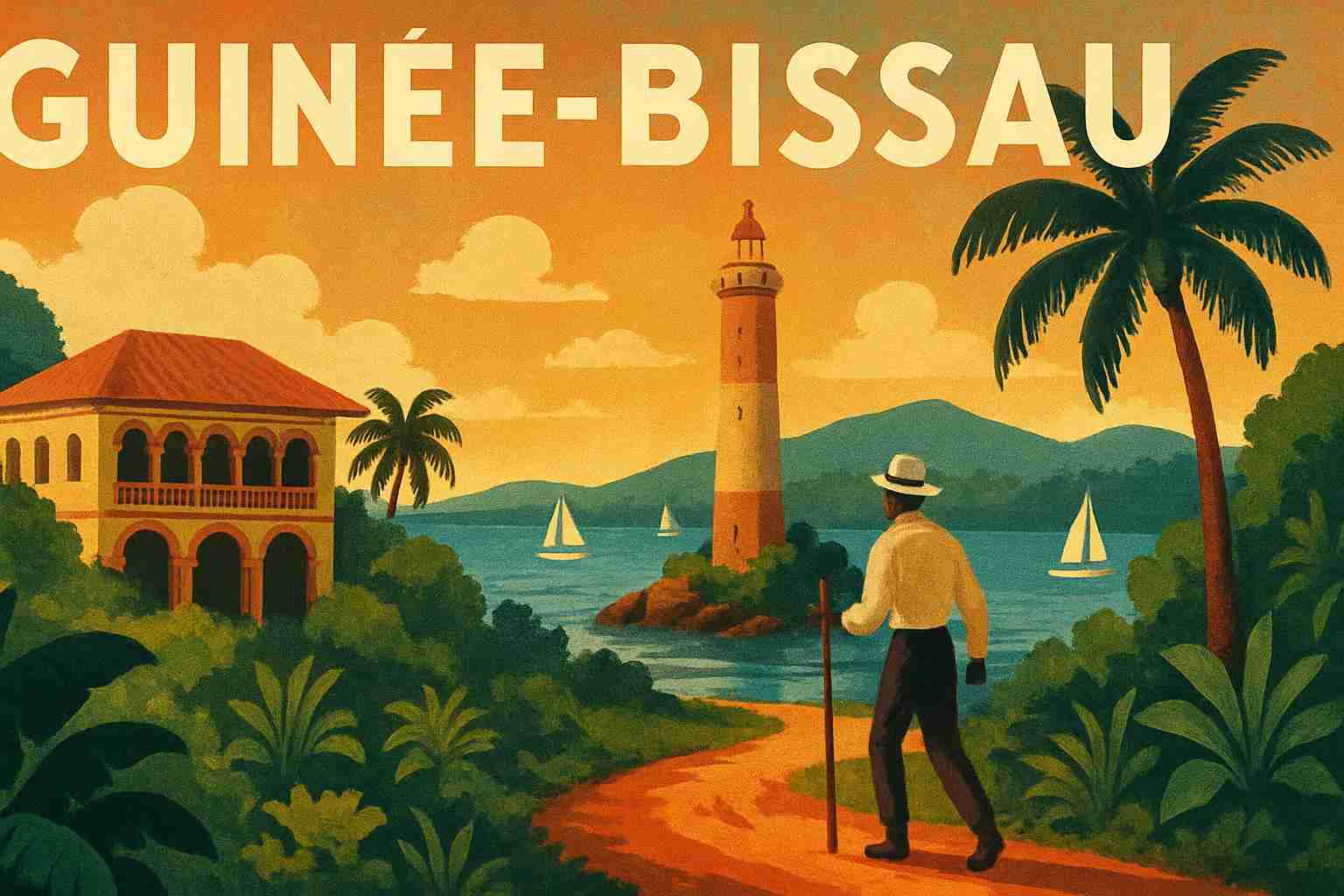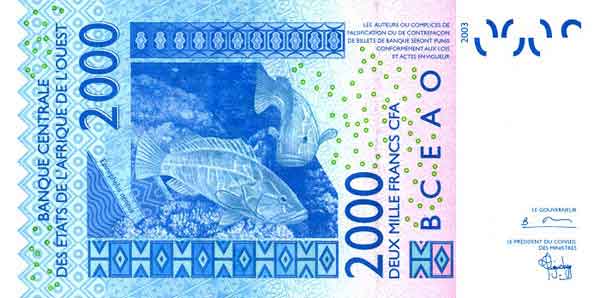Currency in Guinea-Bissau: XOF Send & Spend FX Guide
Resources for Expats, Travelers and Entrepreneurs Navigating Life and Trade in Guinea-Bissau with the West African franc.

What's in this Guinea-Bissau currency guide?
What currency is used in Guinea-Bissau?
The official currency of Guinea-Bissau (country code: GW) is the West African franc, with symbol and currency code XOF.
What is a good West African franc exchange rate?
The BestExchangeRates.com currency comparison table below helps you see the total cost of your currency transaction by showing the exchange rates offered by different providers. It also makes it easy to spot potential savings from market-leading FX services compared to bank rates.
To see a full list of rates, enter your transaction type, currencies and amount then click ‘GET RATES’:
Loading rates...
|
|
|
Good things to know about the West African franc
The West Africa CFA franc (XAF) is the currency of six independent states in Western Africa - Benin, Burkina Faso, Guinea-Bissau, Ivory Coast, Mali, Niger, Senegal and Togo.
In several central African states the Central African CFA franc (currency code XAF) is in circulation, such as Cameroon - Central African CFA franc. The Central African CFA franc is of equal value to the West African franc. Both XAF and XOF currencies are referred to as the CFA franc.
For more XOF information check out our selection of West African franc news and guides.
Frequently Asked Questions
What currency should I use in Guinea-Bissau?
The domestic currency in Guinea-Bissau is the West African franc.
What is the West African franc currency code and symbol?
The three letter currency code for the West African franc is XOF.
What does the West African franc look like?
Here is an example West African franc banknote:

Which countries use the West African franc?
It is the domestic currency in Senegal, Benin, Burkina Faso, Ivory Coast, Guinea-Bissau, Mali, Niger and Togo.
Is the West African franc a closed currency?
No, the West African franc is freely available and convertible. See guide: What is a closed currency?
What are equivalent amounts of USD and XOF?
Here are some popular conversion amounts for USD to XOF (US dollar to West African franc)*.
*Converted at the current USDXOF interbank exchange rate. Calculate actual payout amounts for Send Money and Travel Money exchange rates.
Travel money for Guinea-Bissau
Using Wise for West African franc travel money is a smart choice for savvy travelers. With its competitive exchange rates and low fees, Wise allows you to convert and manage multiple currencies effortlessly.
Be careful when using your own bank's Debit/Credit Card, as your bank may also charge an extra 3% as an “Overseas Transaction Charge” plus “Overseas ATM” fees for withdrawing cash on top of the standard Visa/Mastercard 2.5% from market mid-rate.
For card purchases, if you are offered a choice of currencies always select to Pay in West African franc otherwise you will typically get much worst dynamic currency conversion (DCC) exchange rates.
If you really want West African franc cash before departure, you can save money by ordering online. You generally get better rates and can pick up the XOF cash locally or even on travel day at the airport.
Guinea-Bissau: Travel Guide
Traveling to Guinea-Bissau requires careful financial planning to ensure a smooth and cost-effective experience. Here's a comprehensive guide to help you navigate currency considerations and manage your money effectively during your visit.
Guinea-Bissau is a small country located in West Africa, bordered by Senegal, Guinea, and the Atlantic Ocean. It is known for its diverse cultures, wildlife, and colonial history.
The country has a rich cultural heritage, with a mix of indigenous, European, and African influences. Visitors can experience the local culture by visiting traditional villages, attending festivals, and experiencing the local music, dance, and cuisine.
Guinea-Bissau is also home to a diverse array of wildlife, including primates, birds, and reptiles. The Orango Islands National Park is a popular destination for ecotourism, as it is home to a unique population of saltwater hippos.
The country has a colonial history, with the Portuguese colonizing the region in the 15th century. Visitors can see the remains of the colonial era in the capital city of Bissau, including the Presidential Palace and the Fortress of São José.
Guinea-Bissau is one of the poorest countries in the world and has a fragile economy. Agriculture is the main economic activity and the country is heavily dependent on foreign aid. The official language is Portuguese, but French and Creole are also widely spoken.
Overall, Guinea-Bissau is a country with a rich cultural heritage and diverse wildlife, but it is one of the poorest countries in the world with a fragile economy. It is worth noting that Guinea-Bissau has experienced political instability in the recent past. Travelers should check with their government's travel advisory before planning their trip.
Everyday Costs in in Guinea-Bissau
How much does it really cost to live, work, or travel in Guinea-Bissau? Here's what to expect for daily expenses and expat living.
Currency Guide for Guinea-Bissau (ISO Code: GW)
When planning a one-week mid-range stay in Guinea-Bissau, it’s advisable to budget around 100,000 to 120,000 West African CFA francs (XOF), which translates to roughly 150–180 USD. This amount will cover comfortable accommodations, meals, local transportation, and excursions. Here’s a quick rundown of typical daily expenses in Guinea-Bissau:
- 🍽️ Meal at a local restaurant: 3,000 - 5,000 XOF
- ☕ Coffee: 1,000 - 2,000 XOF
- 🚍 Public transport fare: 500 - 1,000 XOF
- 📶 Prepaid SIM card: 5,000 - 10,000 XOF
- 🏨 Budget hotel or Airbnb: 15,000 - 25,000 XOF
In terms of travel cost comparison, Guinea-Bissau is generally cheaper than the United States and somewhat more affordable than the UK, making it a great option for budget-conscious travelers. Overall, Guinea-Bissau offers a value-oriented experience that appeals to adventurers looking to explore unique culture without breaking the bank.
Expat Living Costs and Money Management Tips
For expatriates in Guinea-Bissau, typical monthly living costs can range from 300,000 to 500,000 XOF, depending on lifestyle choices. This includes rent, utilities, groceries, and transportation. When it comes to managing your finances, it’s essential to have a reliable banking option. Many locals and expats prefer to use debit or credit cards for larger purchases, but cash is still king for daily transactions. Local banks tend to have limited online services, so it's wise to establish a good relationship with a local bank to facilitate your needs.
When it comes to transferring money or exchanging currency, online services like Wise or OFX often provide better rates and lower fees compared to exchanging cash at local banks or currency exchange booths. It's generally more advantageous to transfer money online, especially for larger sums, but carrying a small amount of cash for daily expenses is also recommended. Overall, while local exchange services can be convenient, savvy expats tend to rely more on online solutions for better financial management.
USD/XOF Market Data
The below interactive chart displays the USD/XOF change and UP📈 DOWN📉 trends over the past 1 Year.
Recent West African franc Market News
February 5, 2026
Key Developments Affecting the West African CFA Franc (XOF):
1. France Ratifies Law Ending CFA Franc Usage: In December 2025, France ratified legislation to end the use of the CFA franc in West Africa, facilitating the transition to the new Eco currency. (en.interaffairs.ru)
2. BEAC Denies Devaluation Rumors: In January 2026, the Bank of Central African States (BEAC) dismissed rumors of a potential devaluation of the CFA franc, citing stable economic fundamentals and sufficient foreign exchange reserves. (ecofinagency.com)
3. Côte d'Ivoire's Economic Growth: Côte d'Ivoire continues to be a financial anchor in Francophone West Africa, contributing 40% to the West African Economic and Monetary Union's GDP and maintaining growth close to 6% for over a decade. (techcabal.com)
4. Senegal's Consideration to Exit CFA Franc: In April 2025, Senegalese President Bassirou Dioumaye Faye presented three options for breaking away from the CFA franc, including joining the West African Economic and Monetary Union or minting a new national currency. (en.sputniknews.africa)
These developments indicate significant shifts in the monetary landscape of West Africa, with potential implications for the stability and future of the CFA franc.
Recent Developments in West African Monetary Policy:
- Senegalese President Presents Three Options for Breaking Away From CFA Franc - 05.04.2025, Sputnik Africa, Published on Saturday, April 05
For more XOF information read our News and guides to the West African franc.
Send Money to Guinea-Bissau - Best Rates
To get a good (and fair) exchange rate when sending money to Guinea-Bissau you need to find and compare exchange rates for International Money Transfers (IMTs).
The available FX rates for sending money abroad can be very different to the mid-market (wholesale) rate which you see reported online and in the News.
You should especially compare your own bank's exchange rates to those available from Money Transfer specialists to see how much you can save - we make that calculation easy in the below table.
Get a better deal for foreign transfers to Guinea-Bissau
When sending money to Guinea-Bissau it’s important to compare your bank’s rates & fees with those we have negotiated with our partner money transfer providers. To get a better deal you should follow these 4 simple steps :
- Open an account with a BER reviewed FX provider (id docs may be required)
- You specify the local or West African franc amount you want to transfer
- Make a local currency domestic transfer for the requested amount to the provider's bank account in your country
- Once your funds are received by the provider the converted XOF amount will be transfered to the recipient account you specify in Guinea-Bissau.
Use the above calculator to compare the exchange rates of FX specialist providers rates versus your bank's standard rates you can hopefully save around 5% and maybe more - end result is more West African franc deposited into the recipient bank account and less margins and fees kept by the banks!
